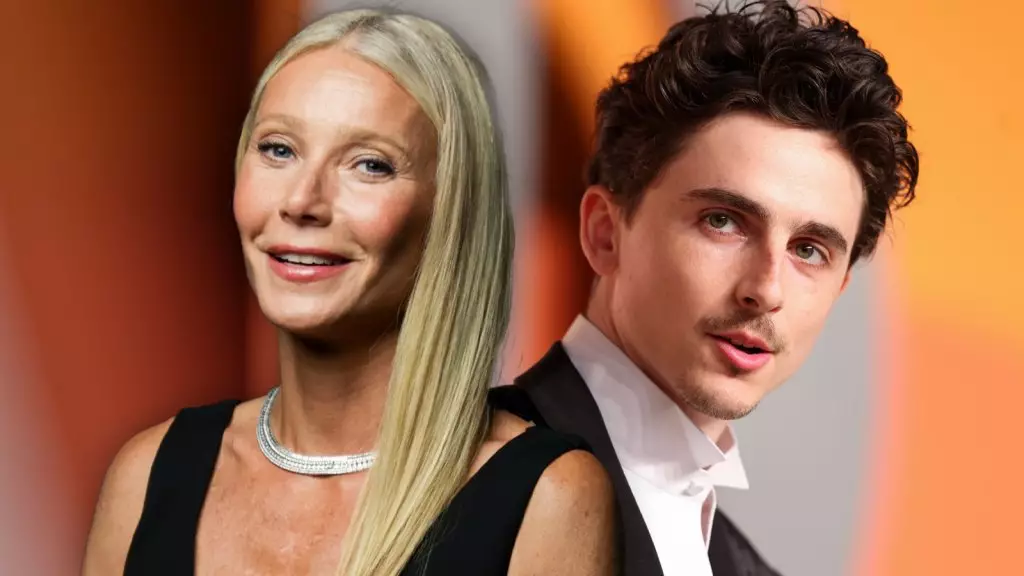When Gwyneth Paltrow made headlines with her remarks questioning the necessity of intimacy coordinators in film and television, she sparked a firestorm of debate within the industry. Her assertion that such coordinators made her feel “very stifled” raised eyebrows, particularly in a time when consent and emotional safety on set are gaining unprecedented recognition. Ex-Channel 4 drama chief Caroline Hollick did not mince words, labeling Paltrow’s comments as “irresponsible.” This confrontation serves as a reminder of the contrasting perspectives surrounding intimacy in storytelling—one where personal comfort battles against the broader need for safety in creative environments.
Nah, this isn’t just another case of celebrity triviality—it’s a matter that hits at the very core of artistic expression in an era that demands accountability and sensitivity. While Paltrow speaks from a place of experience and privilege, her words suggest a disconnect from the industry’s ongoing evolution in response to movements like #MeToo. The “old guard” mentality she espouses could prove detrimental, potentially jeopardizing efforts to create safer and more inclusive environments for all actors, especially those less established than she is.
Understanding the Role of Intimacy Coordinators
Hollick’s strong endorsement for intimacy coordinators reveals the necessity of these professionals in shaping the future of on-screen intimacy. These coordinators act as advocates for performers, ensuring they have a voice in scenes that often traverse the sensitive line between eroticism and discomfort. Given Hollywood’s fraught history regarding the treatment of actors, particularly women, the role of intimacy coordinators should be non-negotiable. Paltrow’s reluctance to embrace this evolution raises questions about whether some actors are willing to sacrifice personal comfort for broader representation and safety.
Furthermore, Hollick emphasizes how intimacy coordinators help illuminate the balance of power on set, a dynamic traditionally skewed in favor of producers and directors. By bringing these coordinators on board, actors are not only empowered but also supported as they navigate their roles. The protection and respect that intimacy coordinators offer are vital in dismantling long-standing power imbalances within the industry. Such awareness allows for creative storytelling while fostering an environment that prioritizes consent.
Redefining Sexual Representation in Media
The increasing use of intimacy coordinators offers a valuable opportunity to redefine how sexual content is portrayed on screen. Both Hollick and Liz Kilgarriff, another involved figure at the Series Mania panel, stress the importance of ensuring that sex scenes are rich with emotional context rather than mere titillation. Historically, sex in media often falls into the trap of sensationalism without genuine emotional investment, a practice that not only objectifies performers but also misrepresents intimacy as a whole.
With the rise of pornography’s influence on societal expectations surrounding sex, Hollick advocates for a return to *real* portrayals of intimacy—scenes that reflect deep emotional connections rather than superficial escapades. As research suggests that younger generations are craving authentic romantic narratives, the industry has a unique chance to navigate this space thoughtfully. Here, intimacy coordinators can lead the charge, advocating for nuanced portrayals that resonate on an emotional level.
Consent: The New Frontier
The significance of consent in modern storytelling cannot be overstated, as pointed out by Manuel Alduy. His comments highlight the need for portrayals of consent to become more prevalent, especially in regions where such concepts are still evolving, like France. By prioritizing consent in narratives, creators not only provide essential context for intimacy but also educate audiences on its importance—an integral lesson that resonates far beyond the screen.
The onus lies with filmmakers, writers, and producers to uphold standards that reflect the complexities of real-life relationships. It’s an opportunity to craft stories where consent isn’t just stated but demonstrated, thereby enriching the viewing experience. As the entertainment landscape shifts in alignment with societal values, intimacy coordinators provide a critical link to ensure that these stories are not just told but told responsibly.
In a world that increasingly values authenticity and emotional depth, the conversation surrounding intimacy coordinators is more crucial than ever. Not as a hindrance, but as a reinforcement of an environment ripe for vulnerability, connection, and above all, empowerment.


Leave a Reply